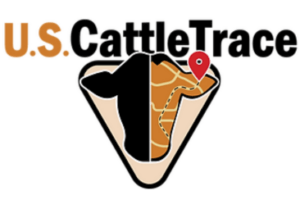December 2023
Florida Farm Bureau had representation at the 2023 U.S. CattleTrace Symposium in Kansas City, Mo., Nov. 14-15. The focus of the two-day symposium was to learn about the current response plan that the U.S. has for a potential foreign animal disease outbreak and to participate in an immersion experience through a tabletop simulation.
Geoffrey Patterson, Florida Farm Bureau Director of Ag Policy, and Christian Spinosa, State Director from District 14 attended on the two-day conference on behalf of the organization to learn about new efforts and technology created by U.S. CattleTrace. Supported by policy, Florida Farm Bureau joined the organization to help advance traceability in Florida. Disease traceability is important not only to the state, but to the U.S.’s overall biosecurity of the beef industry.
 While at the symposium, Patterson participated in the tabletop simulation which walked attendees through a potential disease outbreak scenario. The scenario encouraged participants to discuss what their states are doing if an outbreak occurs and what various departments, like the state veterinarian and department of agriculture, are doing to combat the outbreak. Additionally, attendees were able to see a demonstration of how an enhanced animal disease traceability system will help with response plans in the future. This was the first year the symposium provided a hands-on opportunity to learn about the traceability system.
While at the symposium, Patterson participated in the tabletop simulation which walked attendees through a potential disease outbreak scenario. The scenario encouraged participants to discuss what their states are doing if an outbreak occurs and what various departments, like the state veterinarian and department of agriculture, are doing to combat the outbreak. Additionally, attendees were able to see a demonstration of how an enhanced animal disease traceability system will help with response plans in the future. This was the first year the symposium provided a hands-on opportunity to learn about the traceability system.
“The simulation really drove home the significant effects of an outbreak because of how interconnected the U.S. cattle industry is,” said Patterson. “The traceability system that U.S. CattleTrace has created would provide us the means to digitally trace back or trace forward where a specific animal has been and help reduce the spread of disease.”
The system allows users to trace back to see what cattle the infected animal has been in contact with. From that point, users can trace forward to see what other livestock the exposed cattle have been around. This would speed up the data collecting process from manual collection of days or weeks down to minutes.
“The faster you can identify the sick animal and those it’s been around, the sooner you can stop the spread and minimize the economic effect to the industry as much as possible,” said Patterson.
Symposium attendees represented numerous cattle states and occupations ranged from producers, animal health officials, meat processers, retailers and allied industry members, like the Florida Farm Bureau. By having a wide range of attendees, it gave a broad perspective of what works and doesn’t work for different states.
While full traceability is still a long way off for the cattle industry, great strides are being made to encourage cattle producers to utilize this technology. The Florida Cattlemen’s Association has created a Florida Cattle ID Task Force to demonstrate the effectiveness of electronic ID tracking and why it is important for ranchers to participate.

